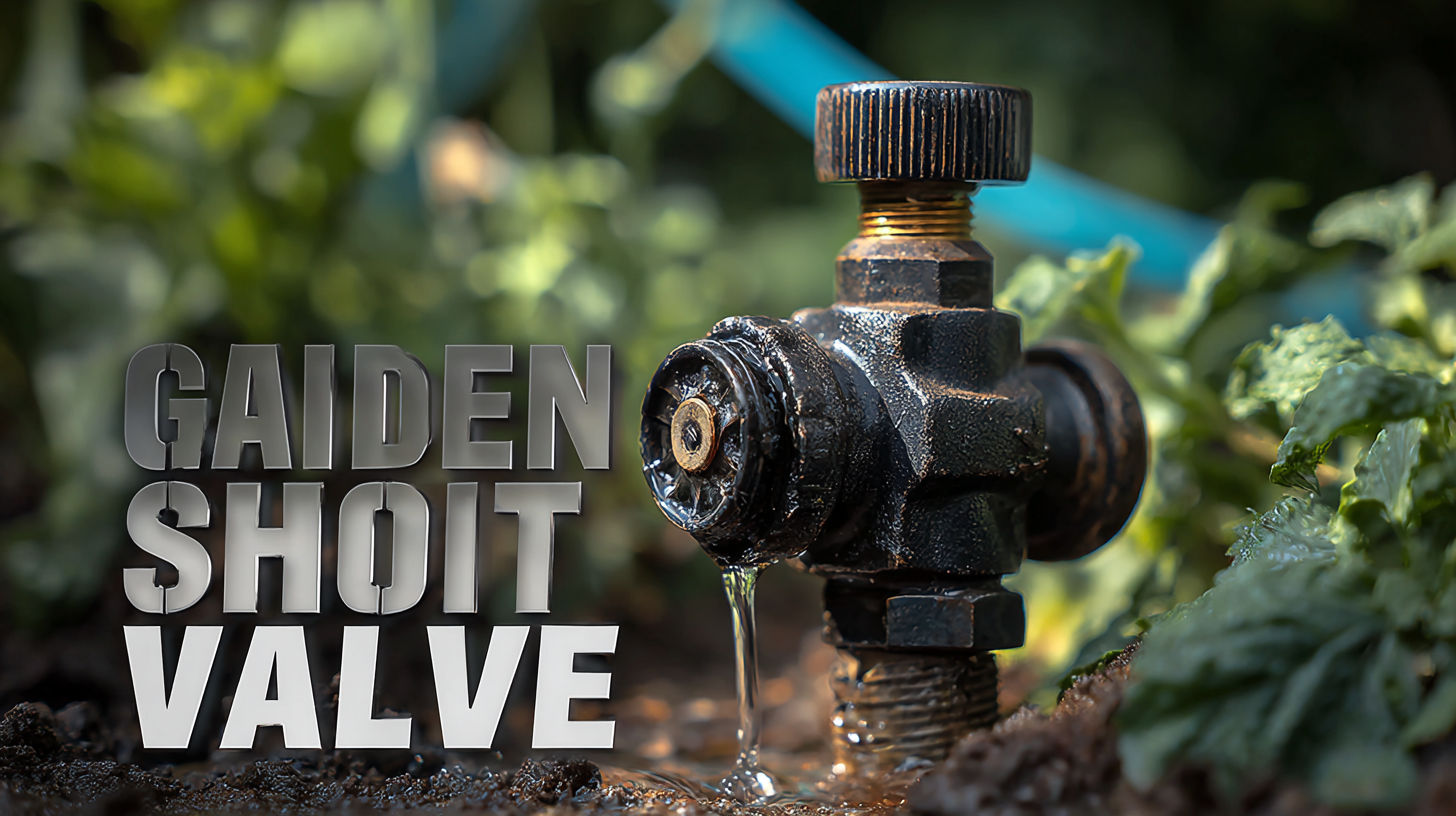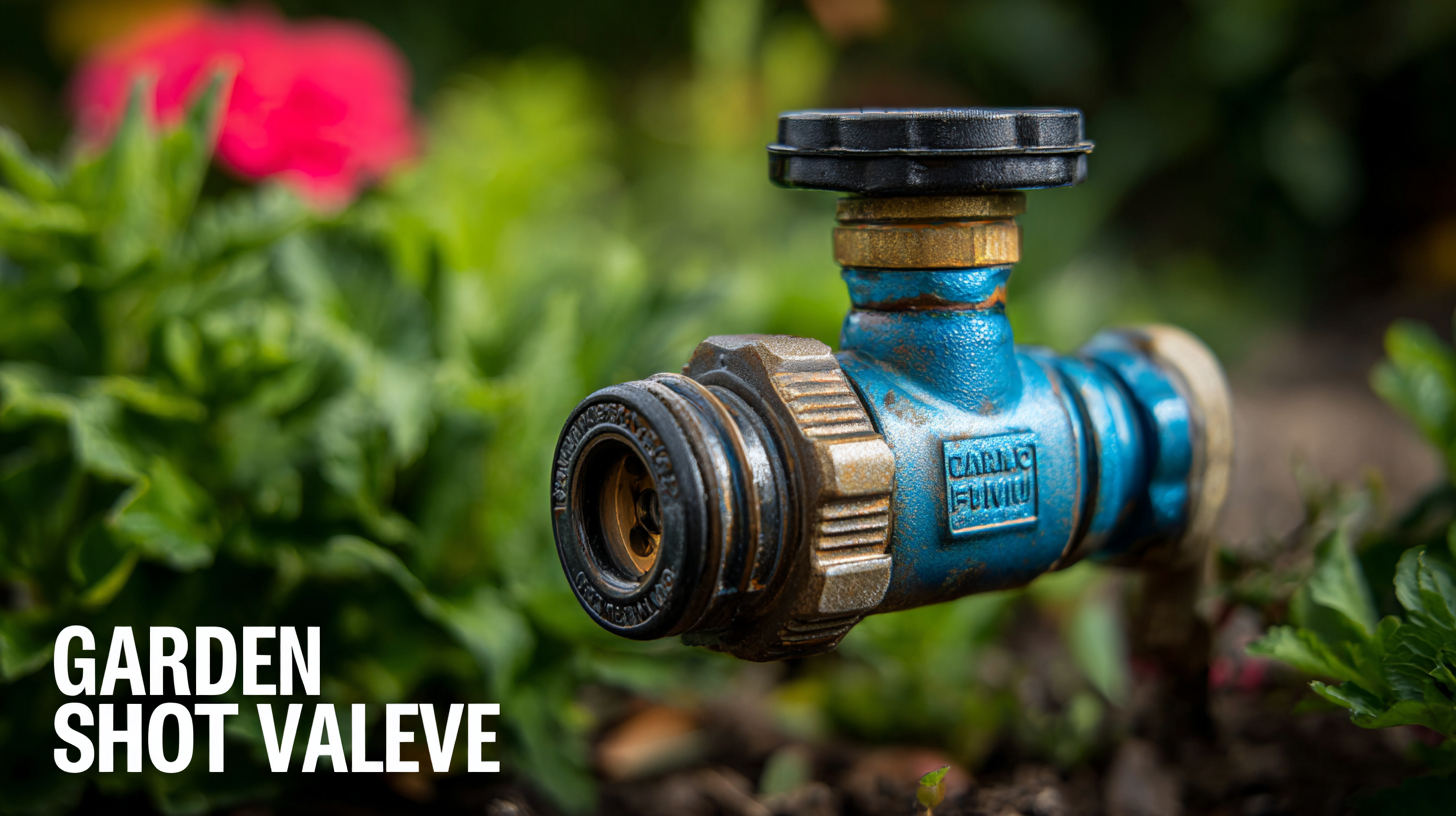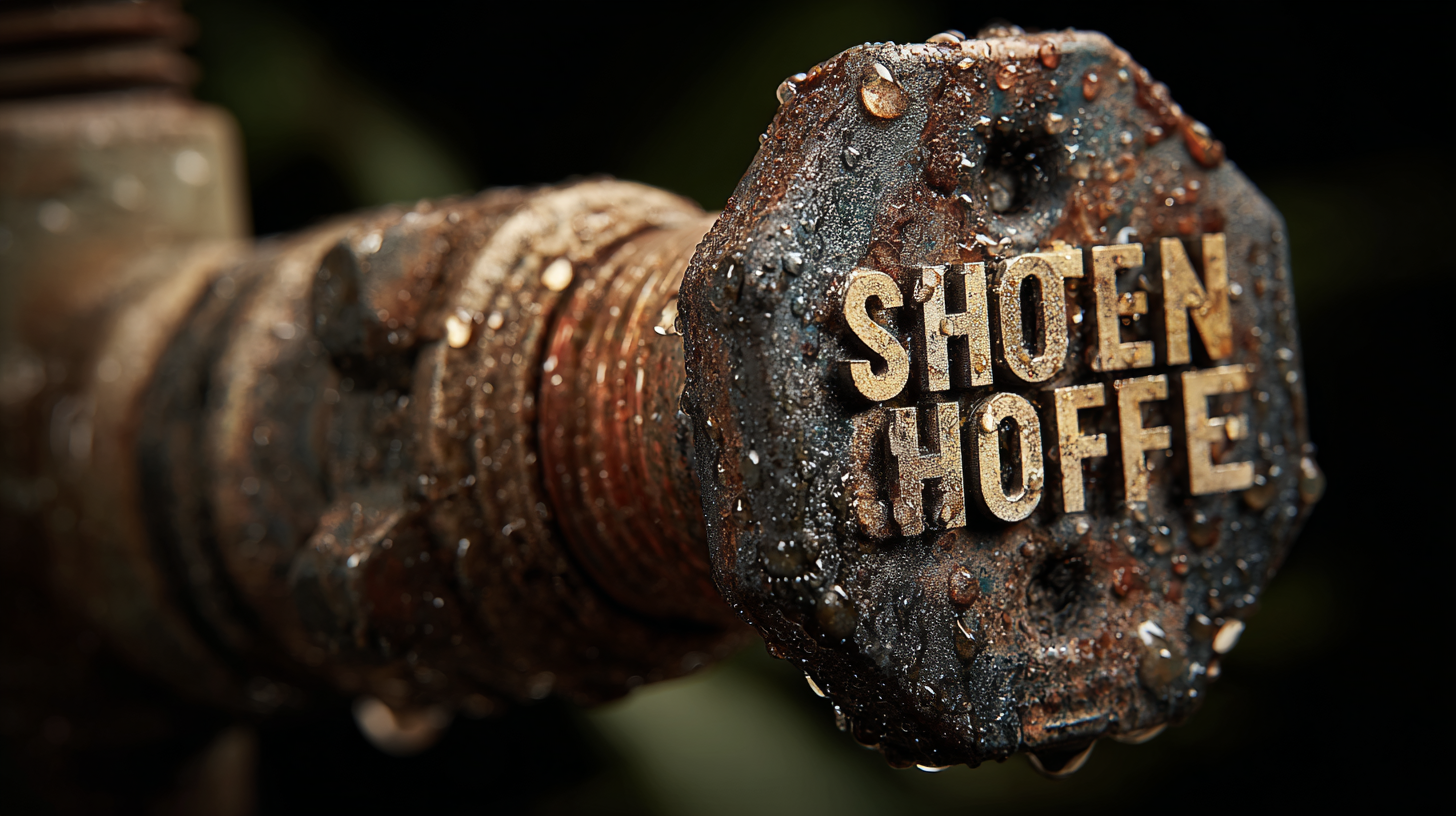Efficient water management is crucial for optimizing irrigation systems, particularly in the face of increasing water scarcity and rising agricultural demands. The right tools can significantly enhance these systems, and one such essential component is the Garden Shut Off Valve. According to a report by the American Society of Agricultural and Biological Engineers, improper irrigation methods can lead to a staggering 50% water waste, highlighting the importance of precise water control systems.

By integrating a high-quality Garden Shut Off Valve into your irrigation setup, you can ensure better water distribution and minimize wastage. This not only conserves precious resources but also contributes to healthier plant growth and improved crop yields. In this blog, we’ll explore seven compelling reasons why investing in the best Garden Shut Off Valve can dramatically enhance your irrigation system's efficiency.
When it comes to enhancing the efficiency of your irrigation system, the quality of the garden shut off valve plays a crucial role. A high-quality valve not only regulates water flow but also prevents leaks and helps maintain consistent pressure. Look for valves made from durable materials such as brass or PVC, which resist corrosion and wear over time. These materials ensure longevity and reliability, making them ideal for various weather conditions and soil types.

Shut off valves play a critical role in enhancing water conservation within irrigation systems. According to the U.S. Environmental Protection Agency (EPA), approximately 50% of water used for outdoor purposes is wasted due to inefficient irrigation practices. By incorporating high-quality shut off valves, gardeners can effectively manage water flow, reducing unnecessary waste. These valves enable users to quickly stop water flow during maintenance or when sections of the garden do not require watering, ensuring that every drop counts.
Moreover, studies indicate that proper management of irrigation systems, aided by the use of shut off valves, can lead to water savings of up to 30%. This is particularly important as regions face increased water scarcity challenges. The installation of automated shut off valves equipped with smart technology allows for precise scheduling based on real-time soil moisture levels, further promoting efficient water use. With the right shut off valves, gardeners not only protect their plants but also contribute to broader water conservation efforts that benefit the environment and community resources alike.
Shut off valves play a critical role in irrigation systems, primarily by preventing water waste and leaks. According to the Environmental Protection Agency (EPA), a staggering 30% of the water used in residential landscapes is wasted due to inefficient irrigation practices. By installing high-quality shut off valves, gardeners can effectively manage water flow, ensuring optimal distribution only when necessary. This not only conserves water but also reduces utility costs, making it a win-win for both the environment and the gardener's wallet.
In addition to conserving water, shut off valves also help in avoiding costly leaks that can lead to significant water loss. A report by the American Society of Civil Engineers (ASCE) highlights that leaks in irrigation systems can account for up to 50% of water loss, particularly when valves are outdated or improperly maintained. By upgrading to modern shut off valves, users can significantly enhance their irrigation systems, minimizing potential leaks and ensuring that every drop counts, which is essential in an era where water scarcity is an increasing concern.
In modern irrigation systems, the integration of user-friendly shut-off valves is pivotal to enhancing operational flexibility. According to a report by the Irrigation Association, approximately 40% of water used for landscape irrigation is wasted due to inefficient practices. Easy-to-use shut-off valves play a critical role in mitigating this wastage by allowing gardeners to quickly and effortlessly control water flow. This immediate access to shut-off points empowers users to respond to changing plant needs, weather conditions, or unexpected leaks, promoting water conservation and system efficiency.

Moreover, the simple design of these valves significantly reduces the time and effort required for maintenance tasks. A survey conducted by the American Society of Irrigation Consultants highlighted that over 70% of irrigation professionals believe that ease of use is essential for effective water management. When shut-off valves are easily accessible and operable, users are more likely to ensure that their systems are functioning optimally. This not only extends the life of the irrigation infrastructure but also enhances the overall effectiveness of water distribution, leading to healthier plants and reduced water costs.
When it comes to optimizing your irrigation system, selecting the right shut off valve is crucial for maximizing efficiency. Factors such as valve size, material, and actuation method can significantly impact the performance of the entire irrigation setup. A well-chosen shut off valve ensures that water flow is managed effectively, minimizing waste and enhancing resource conservation. Additionally, incorporating smart technology, similar to advancements seen in various sectors, can lead to streamlined operations and better control over water resources.
The integration of technology, like AI, into the irrigation sector is a game changer. Just as AI is revolutionizing various aspects of life by improving efficiency, a quality shut off valve can similarly enhance the effectiveness of your irrigation efforts. By selecting a valve that features advanced design and materials, you not only reduce the chances of leaks and subsequent water loss but also align your gardening practices with sustainable resource management. Thus, investing in the right shut off valve pays dividends in both productivity and ecological responsibility.
